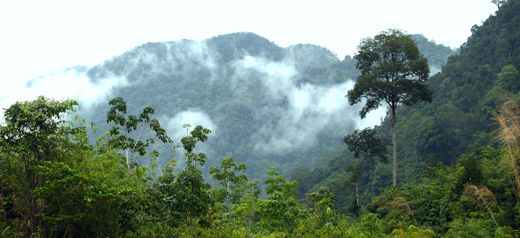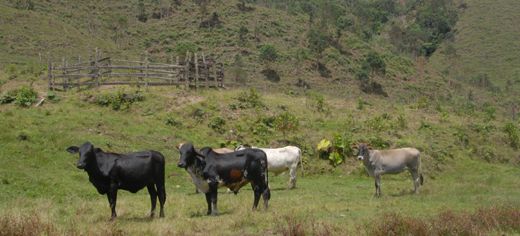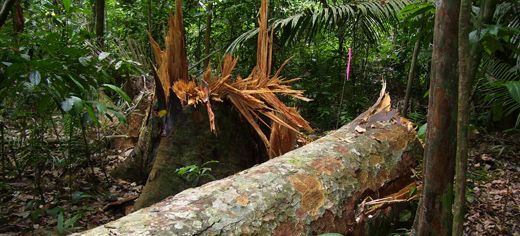
Clouds: bright and with a fresh pine scent
A new study has shed light on the first step of cloud formation, revealing that organic oxides - such as the molecule responsible for giving pine forests their smell - are a vital ingredient.

A new study has shed light on the first step of cloud formation, revealing that organic oxides - such as the molecule responsible for giving pine forests their smell - are a vital ingredient.

Scientists have announced the findings of the first study on the connection between the El Niño and global crop yield fluctuations, providing a new tool for adapting food security to climate change.

A team of scientists has found that Borneo's productive trees are vitally important for global carbon cycling.

Converting cattle ranches to forests is a cheap way of tackling climate change and saving species threatened with extinction, a new study has found.

Carbon offsetting initiatives could be improved with new insights into the make-up of tropical forests.

Foreign species that are devastating water ecosystems could be "hitchhiking" around Britain on canoeists' and anglers' kit, according to a new study.

A new study led by NASA and the University of Leeds has confirmed that natural forests in the Amazon remove more carbon dioxide from the atmosphere than they emit.

A study led by the University of Leeds has shown that global warming of only 2°C will be detrimental to crops in temperate and tropical regions, with reduced yields from the 2030s onwards.

Researchers have developed a new approach to simulating the energetic processes that may have led to the emergence of cell metabolism on Earth - a crucial biological function for all living organisms.

The first animals may have oxygenated the Earth's oceans - contrary to the traditional view that a rise in oxygen triggered their development, according to a study published in Nature Geoscience.